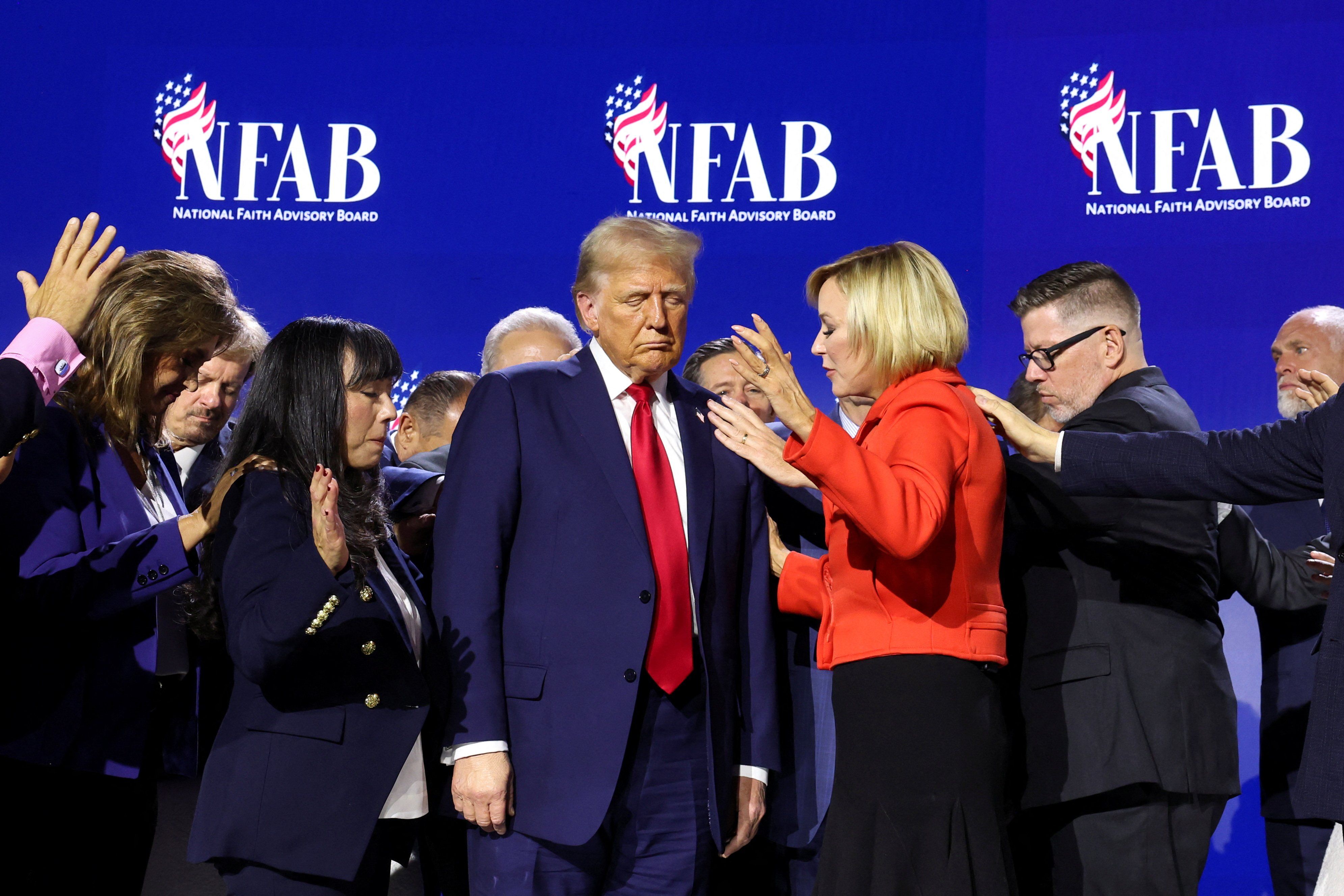President Donald Trump, who sees himself as "a preacher for the white Christian church of MAGA" is taking his "messianic" far-right movement to the bank, writes Salon's Chauncey DeVega.
Although America has had religious presidents before — Presidents Biden, George W. Bush, and Clinton have all expressed some form of piety — Trump is different, as seen in a recent fundraising email sent to his supporters, DeVega says.
"Never before has a president sent an appeal steeped in Christian nationalism," DeVega writes, "promising that 'the fight to restore America’s foundation of FAITH, FAMILY, and FREEDOM is just beginning,' and requesting that, 'if you can afford it, chip in and show the Radical Left that we will NEVER surrender…we’ll RESTORE the values that made America GREAT.'"
"Trump closed his sermon-like email with a familiar evangelical pitch," DeVega says. "By giving money, supporters will be," in his own words, "sowing a SEED OF FAITH into the future of our nation."
The president's sales pitch continues, saying, "The Bible tells us faith as small as a mustard seed can move mountains."
“But if you cannot give right now, I want you to know this: your PRAYERS, your FAITH, your SUPPORT are worth more than all the gold in the world. With God as our refuge, and with YOU by my side, we will SAVE AMERICA," it adds.
DeVega says that "to outsiders — and especially non-evangelicals — Trump’s religious appeals may sound like biblical jabberwocky, absurd and surreal. But for the MAGA faithful and much of White Christian America, such sermons and promises hold real power."
That power, DeVega writes, taps directly into the wallets of Trump's most loyal followers.
"Like Trump’s attempt to hawk MAGA Bibles for a profit, the appeal to ‘sowing a seed of faith’ also copies the tactics of the worst of white evangelical prosperity gospel hucksterism, where God is a kind of divine slot machine,” said Robert P. Jones, author and president and founder of Public Religion Research Institute.
DeVega agrees, saying that "as a master marketer and performer, Trump understands the psychology and needs of his followers and how to manipulate them for maximum effect. His sermonizing and role as MAGA preacher are extensions of that power."
With MAGA viewing Trump as a messiah of sorts, his sermons become a shell game, and, according to Jones, there is "no level below which the Trump political campaign will not stoop to manipulate his followers or raise money.”
“You invest your dollars — not with God directly of course but with an authority claiming to be a conduit to God — and if you have enough faith, that investment will pay out, sprouting into health, wealth, and happiness,” Jones said.
Katherine Stewart, author of the book “Money, Lies, and God: Inside the Movement to Destroy American Democracy,” calls Trump's email "another fleecing operation" describing his fundraising efforts as “a pretty good example of how Christian nationalism works, why it is bad for the country, and why it has little to do with Christianity as most Americans understand the faith.”
DeVega says Trump's base will "not abandon him," despite the fact that "Trumpism is a form of religious politics where faith, emotions, culture, storytelling, disinformation, misinformation and conspiracism dominate."
Matthew Taylor, author of “The Violent Take it by Force: The Christian Movement That Is Threatening Our Democracy,” compares Trump's religious appeal to "the tropes of old-school televangelism," making Trump the "chosen ... vessel for America's redemption."
“All of this baptizes Trump’s authoritarianism and tells his base that Trump has to crush his enemies because they are filled with demons and are trying to thwart God’s agenda,” Taylor says.
“This is how you get church-going, Bible-believing Christians — who claim to follow a sacrificial savior who taught them to love their enemies — to hate their LGBTQ neighbors, to be terrified of migrants and ‘the Left’ and to unquestioningly support a wannabe tyrant. These are the voters who will likely never abandon Trump, because their attachment to him is not merely political; it’s religious," Taylor says.
